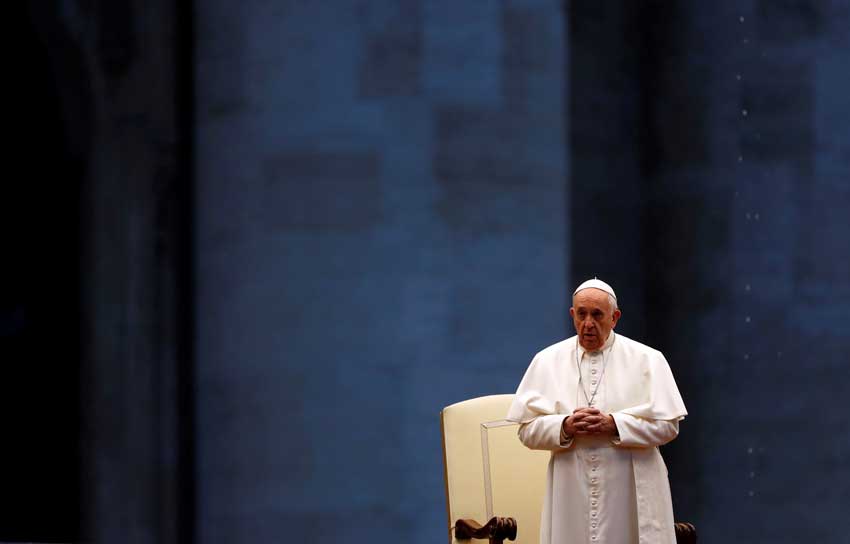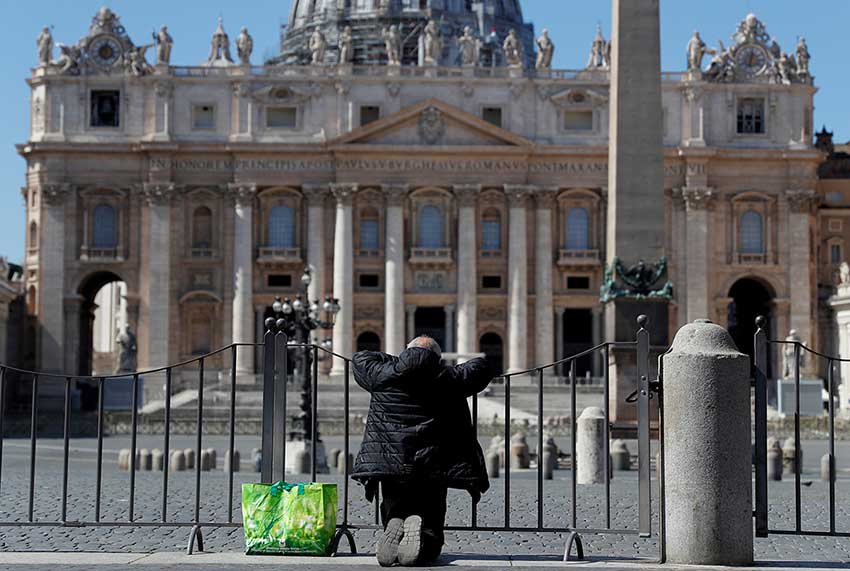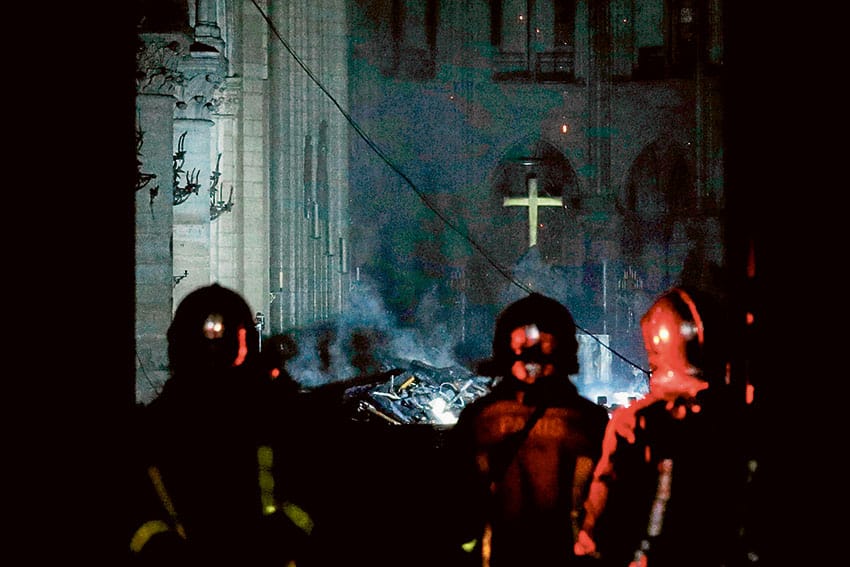
This is a threshold moment for us and the whole world
As part of his extraordinary ‘Urbi et Orbi’ blessing on the steps of St Peter’s Basilica last Friday, Pope Francis delivered a powerful meditation on the coronavirus crisis that is confronting the world. Reflecting on the Gospel of Mark (4:35-41), the disciples’ fear and Jesus’ calming of a storm, the pontiff characterised this moment of history as a time of spiritual reckoning.
He proclaimed of God, “You are calling on us to seize this time of trial as a time of choosing. Now is not the time of God’s judgement, but of our judgement: a time of choosing what matters and what passes away, a time to separate what is necessary from what is not”.
Seated in solitude within St Peter’s Square, the Pope claimed this unfolding crisis as a decisive event for humanity. Life has lost its outline and the affairs of this world no longer seem safe or certain. Our pre-packaged ideas, personal projects, habits and priorities have been overturned with no promise of end in sight.
Amidst the vulnerability of this new world we have been forced to inhabit, Pope Francis urged an inner awakening on the part of human society – a rediscovery of our faith and hope in Christ, the One who suffers upon the Cross and is risen at Easter, and of our common belonging as sons and daughters of God.
Current turmoil holds up a mirror to ourselves
The current turmoil has exposed a fundamental forgetfulness of these dual realities for we have long been “anesthetised” with ways of thinking and acting that cannot nourish the soul or produce a truly human society. Shaken neither by wars nor injustices across the world, we have lived as if we were invincible and set apart from these suffering “others” only to now find ourselves vulnerable, isolated and without always the inner resources to confront adversity.
“Life has lost its outline and the affairs of this world no longer seem safe or certain”
This spiritual diagnosis by Pope Francis calls to mind the words of Thomas Merton who warned in another century, “We can be ourselves or not, as we please… We may wear now one mask and now another, and never, if we so desire, appear with our own true face. But we cannot make these choices with impunity. Causes have effects, and if we lie to ourselves and to others, then we cannot expect to find truth and reality whenever we happen to want them” (Merton, New Seeds of Contemplation 25).
In the long shadow cast by this global crisis, the culture of self-sufficiency has been unmasked as incapable of reflecting the divine image in which we are made. Nevertheless, in his patience and mercy the call of God continues to echo in our day.

In this moment there are many in spiritual motion, searching for a safe harbour and a lasting future, as they confront what has been all too provisional or else taken for granted. As Yeats owns up, “Now that my ladder’s gone/I must lie down where all the ladders start/In the foul rag and bone shop of the heart” (The Circus Animals’ Desertion).
As people search the heavens for answers, it is a moment that calls from the Church a prophetic witness of solidarity and hope. Pope Francis encourages us as Christians to a faith marked by fortitude, “capable of giving strength, support and meaning to these hours when everything seems to be floundering”.
Countering commercialised ‘community’ with genuine unity
We can gainfully engage this moment by recognising that while our post-Christian culture may define itself against tradition and dismiss faith as timeworn cliché, it cannot shrug off the existential ache that persists and asserts itself in this threshold moment. To echo the observation of the English writer Julian Barnes, as a culture ‘we may not believe in God, but we sure miss him’. In a sense, like the tearful crowds of France before the ashes of Notre Dame Cathedral, we may be resistant to religion but we are still haunted by Christian memory.

Seeking progress without presence, of God or neighbour, this world crisis has now recalled us to both. The pretence of individualism has been shattered by a pandemic that respects no border or claim to exceptionalism. The façade of contemporary ‘community’ has been tested and found wanting, as evident as grocery aisle scraps.
As an Easter people we recognise that Christ is living by our side. Whatever may come, this personal hope and belonging to Christ as one body transforms an aching absence into the consolation of presence, the grip of isolation and fear into the courage to abide with one another in love, and, like those first imperilled disciples, to entrust ourselves to the Lord who provides every blessing and strength we will need.
Related articles:
Daniel Ang: The signs of the times for parish life
Every man for himself is not a solution to pandemic, pope says
